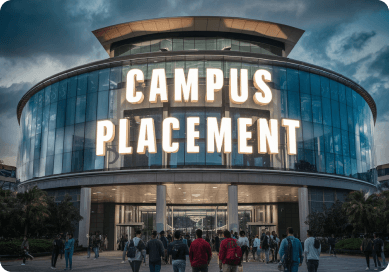Enter OTP



Oldenburg, Germany

Oldenburg, Germany

Cost Of Living

Undergraduate Fees International Students

Post Graduate Fees International Students

The University of Oldenburg is globally recognized for its interdisciplinary approach, particularly in sustainability, renewable energy, environmental sciences, and hearing technology. As a member of the European Universities Alliance (YUFE), it promotes international cooperation and mobility. It also has a strong emphasis on research-based teaching, small class sizes, and a vibrant, inclusive learning environment—making it a top choice for students aiming for hands-on, future-oriented education.
Claudia Kemfert, born in 1968, is a distinguished German economist specializing in energy research and environmental p... View More
Claudia Kemfert, born in 1968, is a distinguished German economist specializing in energy research and environmental protection. She serves as Professor of Energy Economics and Sustainability at the Hertie School of Governance in Berlin and heads the Energy, Transportation, and Environment department at the German Institute for Economic Research (DIW Berlin) . View Less
Jürgen Krogmann (born 1963) is a German politician affiliated with the Social Democratic Party (SPD). He represented ... View More
Jürgen Krogmann (born 1963) is a German politician affiliated with the Social Democratic Party (SPD). He represented his region in the Lower Saxony Landtag from 2008 to 2014, and since November 2014, has been serving as the mayor of Oldenburg, demonstrating lasting local influence and leadership View Less
Angelika Brandt (born December 6, 1961) is a leading Antarctic deep‑sea biologist who pioneered oceanographic expe... View More
Angelika Brandt (born December 6, 1961) is a leading Antarctic deep‑sea biologist who pioneered oceanographic expeditions such as the ANDEEP cruises. She is internationally recognized for her contributions to understanding benthic biodiversity in Antarctic abyssal ecosystems View Less
Aloys Wobben (22 January 1952 – August 2021) was an engineer, billionaire businessman, and the founder of Ener... View More
Aloys Wobben (22 January 1952 – August 2021) was an engineer, billionaire businessman, and the founder of Enercon, the German wind turbine manufacturer. Educated at Oldenburg, he built Enercon into a top renewable energy firm and ranked among Germany’s richest individuals before his passing View Less
Karoline Linnert (born 1958) is a prominent German Green politician who earned her degree at the University of Oldenbu... View More
Karoline Linnert (born 1958) is a prominent German Green politician who earned her degree at the University of Oldenburg. She served as Senator for Finance and Deputy Mayor of the city-state of Bremen from 2007 to 2019, one of just two individuals holding mayoral-level responsibilities during that period View Less
Bettina Meyer is an Antarctic researcher and professor whose association with the University of Oldenburg stems from her... View More
Bettina Meyer is an Antarctic researcher and professor whose association with the University of Oldenburg stems from her deep-sea ecology work. Recognized for her contributions to polar science, she is listed among the university’s notable alumni and faculty, particularly in Antarctic research circles View Less
The University of Oldenburg boasts a modern, eco-conscious infrastructure spread across two main campuses: Haarentor and Wechloy. The campuses are well-equipped with advanced laboratories, research centers, multimedia classrooms, digital learning environments, and specialized institutes such as the Center for Environmental Modeling and the Wind Energy Research Center. The university emphasizes sustainability, with green-certified buildings and energy-efficient technology.
Student life at Oldenburg is vibrant, diverse, and welcoming. Students can participate in cultural events, clubs, music and theater performances, workshops, and excursions organized by student organizations or the university. The “AStA” (student union) actively advocates for student interests and regularly hosts festivals, political talks, and social campaigns, fostering a strong campus community.


The Career Service Center at the university offers comprehensive support for career planning, internships, and job placement. Services include CV workshops, interview training, job fairs, networking events, and company visits. The university maintains strong ties with regional employers and research institutes, which helps students transition smoothly into the job market or further academic pursuits.
The below information is required while
completing the university application :
Higher Secondary School Certificate – Equivalent to the German "Abitur" (e.g., Indian CBSE Class 12 with good scores).
University Entrance Qualification (HZB) – Verified through anabin or uni-assist to ensure eligibility.
Language Proficiency
German-taught programs: TestDaF (min. TDN 4), DSH-2, or Goethe C1/C2.
English-taught programs (limited): IELTS/TOEFL scores if required.
CV/Resume – For international applicants, sometimes optional.
Letter of Motivation – Often needed for selective or limited-seat programs.
Proof of Internship/Work (if required) – Some technical or business courses ask for practical experience.
APS Certificate – Required for Indian, Vietnamese, Chinese applicants.
Know more
The university has strong ties with regional and international industries, offering students ample job and internship opportunities through its Career Service Office. Sectors such as energy, environmental technology, healthcare, and IT are actively involved in hiring graduates. Companies like EWE AG, OFFIS, Fraunhofer, Siemens, and local startups participate in recruitment drives, workshops, and job fairs, allowing students to network and transition into professional roles seamlessly.



One of the university’s standout achievements is the "Hearing4all" Cluster of Excellence, recognized and funded by the German Research Foundation (DFG). The university also leads in teacher education, ranking among the best in Germany. In 2023, its AI innovation in maritime safety (predicting ship rolling) received the Niedersachsen Innovation Prize, and in 2025, the NaviSense cluster received major federal research funding for breakthroughs in bio-inspired navigation and sensory systems.


In June 2025, Oldenburg and the University of Bremen submitted a joint University Excellence Consortium proposal to the Wissenschaftsrat, aiming to secure €15–28 million annually in funding starting 2027. This initiative is built on their shared scientific strengths and 2025 Success in Excellence Clusters.
Oldenburg was once again nominated for the German Sustainability Award in 2024, recognizing its interdisciplinary sustainability work, carbon-neutrality commitment (2030 target), and rooftop solar systems—among the highest in Germany.
The Research Group Cascade Use at the university won the German Federal Ministry of Economic Affairs’ Raw Material Efficiency Award (2018) for its RAUPE decision-support tool, with the prize officially awarded in January 2019. It was the only academic winner.
Renowned Oldenburg economist Niko Paech, affiliated with the university, received the prestigious ZEIT Wissen “Mut zur Nachhaltigkeit” Award in 2014, for his leading contributions to sustainability and post-growth economics.
Under the Excellence Initiative, Oldenburg's cluster Hearing4all was designated a Cluster of Excellence in 2012 with €34 million in funding, focusing on improving speech comprehension through noise using interdisciplinary approaches.
Oldenburg excels in R&D through its interdisciplinary institutes like ICBM (marine sciences), OFFIS (IT & energy), and Hearing4all (audiology). It is involved in cutting-edge research in AI, sustainability, smart sensors, digital health, and quantum biology. Government and EU-funded projects support the development of green technologies, environmental models, and autonomous robotics. The university's focus on applied science ensures real-world impact, innovation transfer, and startup incubation.
Part of the new NaviSense Cluster of Excellence, this long-term research explores quantum-based magnetoreception in migratory animals. The findings are translated into bio-inspired sensors and autonomous navigation systems for robotics and conservation applications—secured major federal funding in May 2025
Dr. Sovanna Chhoeung, as part of her doctoral research, developed an AI-driven system using Random Forest algorithms to predict parametric rolling on ships. It provides real‑time course/speed recommendations to prevent accidents—recognized with the 2023 Innovationspreis Niedersachsen in the “Vision” category
Originating from the Department of Automated Manufacturing Technology (AMT) and OFFIS, this mobile robot base supports modular payloads up to 50 kg and uses ROS (Robot Operating System). Its omnidirectional drive makes it highly flexible for research, teaching, and industrial adaptation—with roots in EXIST start‑up funding around 2015–2016.
A spin-off product created from university research by OffIS and AMT, ambiact is a smart current sensor designed for emergency call and caregiving support at home. Launched in 2015, it has been widely adopted across Germany and earned multiple innovation awards








Embark on your educational journey with confidence! Our team of admission experts is here to guide you through the process. Book a free session now to receive personalized advice, assistance with applications, and insights into your dream school. Whether you're applying to college, graduate school, or specialized programs, we're here to help you succeed.
